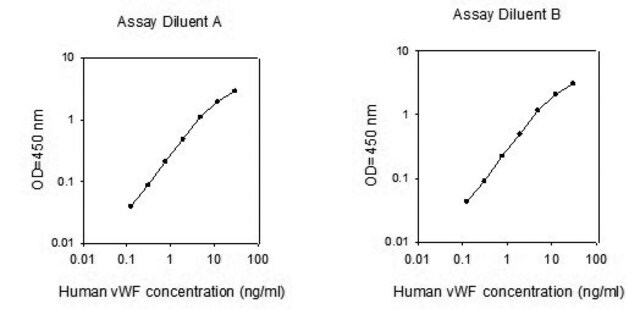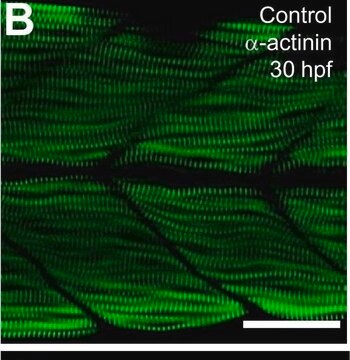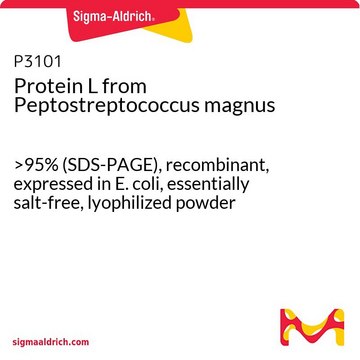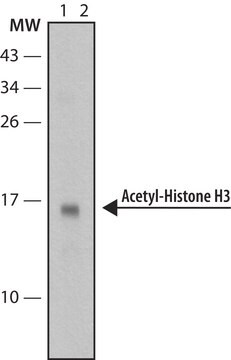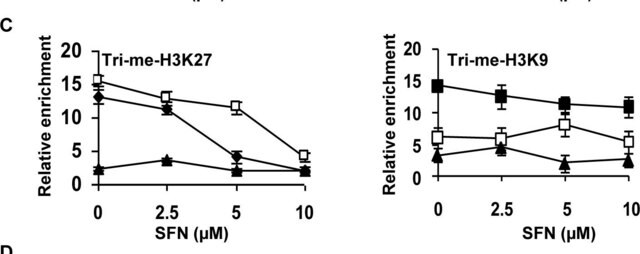S6797
Monoclonal Anti-S100A2 antibody produced in mouse
clone SH-L1, ascites fluid
Synonyme(s) :
Anti-S100L
About This Item
IHC (f)
IHC (p)
IP
WB
immunohistochemistry (frozen sections): suitable
immunoprecipitation (IP): suitable using native preparations
indirect immunofluorescence: 1:1,000 using cultured Madin-Darby bovine kidney (MDBK) cells
western blot: 1:1,000
Produits recommandés
Source biologique
mouse
Niveau de qualité
Conjugué
unconjugated
Forme d'anticorps
ascites fluid
Type de produit anticorps
primary antibodies
Clone
SH-L1, monoclonal
Contient
15 mM sodium azide
Espèces réactives
lizard, goat, rat, bovine, human, feline, frog, canine, pig
Technique(s)
immunohistochemistry (formalin-fixed, paraffin-embedded sections): suitable
immunohistochemistry (frozen sections): suitable
immunoprecipitation (IP): suitable using native preparations
indirect immunofluorescence: 1:1,000 using cultured Madin-Darby bovine kidney (MDBK) cells
western blot: 1:1,000
Isotype
IgG1
Numéro d'accès UniProt
Conditions d'expédition
dry ice
Température de stockage
−20°C
Modification post-traductionnelle de la cible
unmodified
Informations sur le gène
human ... S100A2(6273)
Description générale
Spécificité
Immunogène
Application
Actions biochimiques/physiologiques
Clause de non-responsabilité
Vous ne trouvez pas le bon produit ?
Essayez notre Outil de sélection de produits.
Code de la classe de stockage
12 - Non Combustible Liquids
Classe de danger pour l'eau (WGK)
nwg
Point d'éclair (°F)
Not applicable
Point d'éclair (°C)
Not applicable
Faites votre choix parmi les versions les plus récentes :
Déjà en possession de ce produit ?
Retrouvez la documentation relative aux produits que vous avez récemment achetés dans la Bibliothèque de documents.
Notre équipe de scientifiques dispose d'une expérience dans tous les secteurs de la recherche, notamment en sciences de la vie, science des matériaux, synthèse chimique, chromatographie, analyse et dans de nombreux autres domaines..
Contacter notre Service technique
